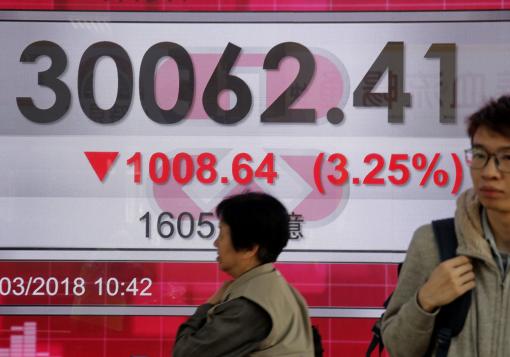
The Trump administration announced more tarrifs this week amid growing concerns among US manufacturers on July 10, 2018. (Photo: AP)
Washington (People’s Daily) - The Trump administration said it would slap an additional 10 percent on top of the $200 billion worth of Chinese imports announced Tuesday.
The new list includes over 6,000 products ranging from seafood to propane, and toilet paper.
“Investors fear an escalating trade war between the world’s two biggest economies could hit global growth,” Reuters reported.
This latest list targets more consumer-oriented goods than the tariffs announced last week, raising a direct threat to consumers and retail firms.
Eswar Prasad, the Tolani Senior Professor of Trade Policy at Cornell University and a senior fellow at the Brookings Institution, told People’s Daily that the Trump administration’s multi-pronged trade war is not by itself likely to derail the US economy’s overall growth momentum or tip the economy into recession.
“Still, there are many swathes of the economy that face an immediate and painful fallout as their export markets slam shut, intermediate inputs become more expensive, and supply chains get disrupted. It seems increasingly clear that, rather than advancing US economic interests, Trump’s aggressive trade measures merely provoke retaliation from trading partners and end up hurting the very workers and businesses they are ostensibly intended to help. Over time, the US could face a greater cost in terms of an erosion of its economic and geopolitical influence,” Prasad explained.
Senate Finance Committee Chairman Orrin Hatch, a senior member of Trump’s Republican party, said the announcement “appears reckless and is not a targeted approach.”
"This action falls short of a strategy that will give the administration negotiating leverage with China while maintaining the long-term health and prosperity of the American economy,” Hatch said. “Imposing taxes on another $200 billion worth of products will raise the costs of everyday goods for American families, farmers, ranchers, workers, and job creators. It will also result in retaliatory tariffs, further hurting American workers,” said a spokeswoman with the US Chamber of Commerce.
“American families are the ones being punished. Consumers, businesses and the American jobs dependent on trade are left in the crosshairs of an escalating global trade war,” said Hun Quach, the head of international trade policy for the US Chamber of Commerce.
James Petras, the Bartle Professor (Emeritus) of Sociology at Binghamton University, told People’s Daily, “The US government has created a hostile environment for China. It has attempted to isolate China militarily and economically, and it failed. China is a very important economic partner to the United States. So I can say this categorically: If there was a referendum in the US today on whether or not to continue the attack, the economic warfare, you would find a vast majority of American businesses, American people in favor of ending tariffs and perhaps negotiating better terms of exchange, perhaps increasing China's imports of US products, as the government has indicated, and perhaps allowing the US businesses that have the technological capacities to sell these goods instead of labeling them security issues.”
Edward Alden, the Bernard L. Schwartz senior fellow at the Council on Foreign Relations (CFR) told People’s Daily, “My hope is that in the meantime the US and China will at least reengage in negotiations and try to work out some sort of deal. In the absence of negotiations, the danger of serious miscalculation by both sides increases.”


